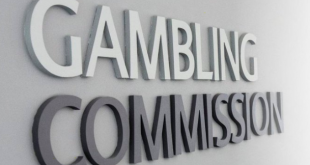As the Gambling Act review White Paper is once again delayed following a change in DCMS leadership, EPIC Risk Management has published its own assessment of hot button topics.
The research was overseen by EPIC’s Pro Sport Advisory Board (PSAB), established back in October 2021, and centres around recommendations for professional sports clubs, leagues and governing bodies to address problem gambling.
Perhaps of most significance for betting industry stakeholders, the consultancy group has provided some guidelines for clubs around commercial partnerships and other business arrangements, which have themselves fallen under the spotlight of the government review.
Ben McGregor, EPIC’s Director of Sports Partnerships, said: “The Gambling Harm Prevention in Sport Review is the result of a year of key discussions from well-informed individuals and institutions who are taking proactive action to minimise the potential risks of gambling harm within their sectors, and therefore have experience to help advise others on recommendations to follow to avoid it affecting others.”
On commercial arrangements, EPIC recommended that sports organisations entering into partnerships with gambling groups should ‘embed mandatory gambling harm education programmes’ into any contacts.
Additionally, any partnerships should have a ‘collaborative approach’ to place safer gambling promotion at the centre of any agreements, and develop an ‘organisation-wide strategy’ to deliver the messaging.
EPIC reiterated in particular that any sports organisation ‘concerned about the wider perception of engaging into commercial partnerships’ with betting and/or casino firms should take note of the recommendation for a collaborative approach.
This is in the wake of some notable cases of fan backlash against betting sponsorship deals – for example, Aston Villa’s recent decision to partner with BK8 was met with disappointment, whilst a deal signed by Everton last year faced some criticism from segments of the club’s support.
In its literature review for the White Paper, EPIC noted that there has been heavy promotion of betting in sports via commercial agreements such as sponsorship deals, and other forms of advertising.
People now perceive gambling to be ‘a normal part of sport’, the group said, asserting that the practice has expanded from its traditional visibility in areas such as horse racing and the football pools.
The rise in popularity of in-play betting and technological developments in gambling, which has seen an upsurge in online gambling, has also further complicated matters, the group added.
Meanwhile, esport has also grown in popularity, accounting for a revenue of $1.38bn in 2022, forecasted to reach $1.87bn by 2025, and gambling on the sport has also grown as a result.
“Similar to sports bettors, esports bettors can believe that they are able to develop a certain degree of skill, knowledge and analysis of in-game features, and therefore they would have a better chance of winning due to their knowledge of the game,” EPIC’s White Paper stated.
“Research has shown that esports betting is not only appealing to gamers, online gamblers in particular are attracted to video game-related gambling.”
The group has previously outlined its perspective on video games, specifically citing loot boxes as an area of concern and calling for ‘critical’ regulation of the in-game assets, a view that has been echoed by the likes of Lord Foster of Bath.
In its conclusions, EPIC stated that – with the ever developing role of digital technology in gambling – there is a greater need for ‘digital resources’ to address problem gambling, particularly among esports players.
“Despite a recent increase in relevant gambling research, there are numerous gaps in the data – especially around gambling amongst female athletes and athletes of younger ages – which limits evidence-led practices in such areas,” the White Paper read.
“Research is vital for decision making, and to create policies and gambling research should be funded by gambling corporations and governing bodies.”
Commenting on the future plans of EPIC and the PSAB, McGregor remarked: “For the Pro Sport Advisory Board, the hard work doesn’t stop here.
“We will now seek to bring new voices to the collective where possible and seek to expand the markets and competitions we represent via its membership, so that we can continue to share best practice learnings, seek advice and adapt our offering to benefit even more sports people and their associated networks around the world.”









